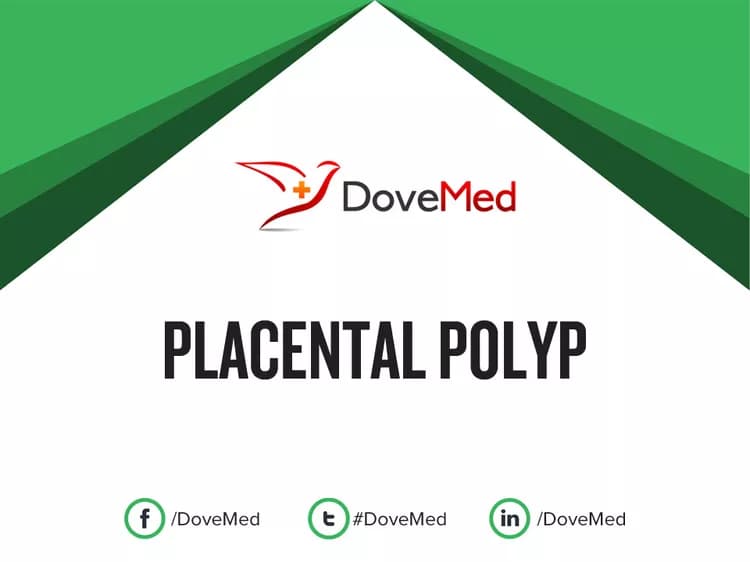What are the other Names for this Condition? (Also known as/Synonyms)
- Polyp in the Placenta
What is Placental Polyp? (Definition/Background Information)
- Placental Polyp is formed by retained placental tissue in the uterus after childbirth or abortion
- The placenta is an organ that connects the developing fetus to the uterine wall. It is a disc shaped reddish brown structure that connects the fetus to the mother through the umbilical cord. The umbilical cord contains two umbilical arteries and one umbilical vein
- The normal function of placenta is to supply nutrients and oxygen to the fetus from the mother’s blood and remove wastes from the fetal body
- There may be an increased risk of bleeding after delivery, which may lead to complications such as anemia, owing to heavy blood loss
- A surgical removal of the polyp can result in excellent prognosis
Who gets Placental Polyp? (Age and Sex Distribution)
Placental Polyp can form in any woman with no specific age or racial/ethnic predominance.
What are the Risk Factors for Placental Polyp? (Predisposing Factors)
There are no specific risk factors associated with the formation of Placental Polyps.
It is important to note that having a risk factor does not mean that one will get the condition. A risk factor increases ones chances of getting a condition compared to an individual without the risk factors. Some risk factors are more important than others.
Also, not having a risk factor does not mean that an individual will not get the condition. It is always important to discuss the effect of risk factors with your healthcare provider.
What are the Causes of Placental Polyp? (Etiology)
- Placental Polyp is formed by placental tissue retained in the uterus either after childbirth or spontaneous or therapeutic abortion
- Most commonly, it occurs after therapeutic abortion or delivery of the baby
What are the Signs and Symptoms of Placental Polyp?
The signs and symptoms associated with Placental Polyp include:
- Vaginal bleeding (postpartum); the bleeding may be heavy later on
- Pelvic pain
How is Placental Polyp Diagnosed?
The diagnosis of Placental Polyp may include:
- Complete physical examination of the patient
- Tests that indicate slightly elevated levels of beta hCG
- Imaging studies such as uterine ultrasound
- Examination of the Placental Polyp under a microscope by the pathologist
What are the possible Complications of Placental Polyp?
Complications due to Placental Polyp could include:
- Anemia due to heavy vaginal bleeding (anemia is the presence of decreased hemoglobin or red blood cells)
How is Placental Polyp Treated?
Removal of the Placental Polyp is most effectively done by curettage of the polyp, followed by examination of the scrapings under a microscope, to confirm the diagnosis of Placental Polyp.
How can Placental Polyp be Prevented?
There are no known effective measures to prevent the formation of Placental Polyps.
What is the Prognosis of Placental Polyp? (Outcomes/Resolutions)
With appropriate treatment, the prognosis of Placental Polyp is excellent.
Additional and Relevant Useful Information for Placental Polyp:
The following DoveMed website link is a useful resource for additional information:
https://www.dovemed.com/diseases-conditions/pregnancy-related-disorders/
Related Articles
Test Your Knowledge
Asked by users
Related Centers
Related Specialties
Related Physicians
Related Procedures
Related Resources
Join DoveHubs
and connect with fellow professionals


0 Comments
Please log in to post a comment.